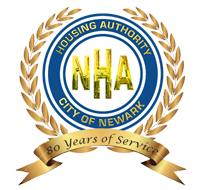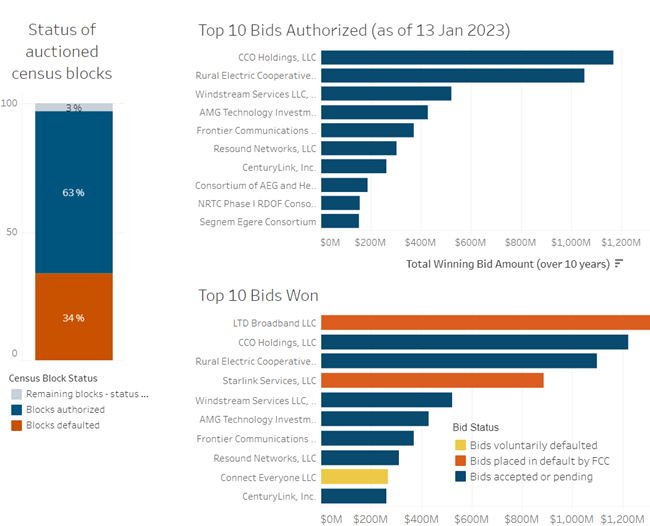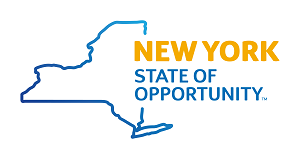
Fast, affordable Internet access for all.

With a 3-2 vote along partisan lines, the FCC has restored both net neutrality–and its Title II authority over Internet access providers. It’s just the latest chapter in a multi-decade quest to try and prevent national telecom monopolies from abusing their market power to undermine competitors while nickel and diming American consumers.
“Consumers have made clear to us they do not want their broadband provider cutting sweetheart deals, with fast lanes for some services and slow lanes for others,” FCC boss Jessica Rosenwocel said in a statement.
“They do not want their providers engaging in blocking, throttling, and paid prioritization. And if they have problems they expect the Nation’s expert authority on communications to be able to respond,” Rosenwocel added.
Smaller ISPs and municipalities worry that the new rules saddle them with burdensome regulations as a punishment for the sins of much larger companies. But the FCC, state leaders, and consumer groups insist the rules should be a net benefit all the same.
The final rules require that ISPs be transparent about any restrictions on consumer broadband lines. They also prohibit ISPs from extorting content and service companies looking to maintain high-quality performance on telecom networks, and prohibit telecoms from undermining online competition by creating pay-to-play “fast lanes.”
*In partnership with Broadband Breakfast, we occasionally republish each other's content. The following story by Broadband Breakfast Reporter Jake Neenan was originally published here.
The Senate voted Thursday evening to pass its Federal Aviation Administration reauthorization package without an amendment that would have funded the Affordable Connectivity Program (ACP).
A bipartisan group of lawmakers had hoped to use the must-pass FAA bill as a vehicle for infusing an extra $6 billion for the imperiled broadband subsidy program, but Senate leadership was successful in keeping non-aviation amendments off the bill.

Lawmakers had mounted a last-minute effort to negotiate a vote on the amendment, with lead sponsor Sen. Ben Ray Luján, D-New Mexico, marshaling 16 bipartisan cosponsors and highlighting the support of advocates and industry groups alike on Thursday afternoon.
“There is growing bipartisan support to strengthen the Affordable Connectivity Program and keep this critical lifeline alive for more than 55 million Americans. There are now 16 Senators from both sides of the aisle, representing millions of people and diverse states, backing this amendment,” he said in a statement.
The Senate also managed to prevent a lapse in the agency’s authorization by passing a separate short-term extension. The House extended the agency’s remit until May 17 on Wednesday before leaving D.C. for the week, and will still need to vote on Thursday's five-year reauthorization package.
Schoharie County, New York officials have applied for a $30 million New York State ConnectALL grant with the hopes of eventually building a $33 million, county-wide fiber network.
The shape and scope of the network has yet to be determined, but the county hopes to build a network that brings affordable access to the rural, agriculture-heavy county.
“Schoharie County applied for the grant under the NYS MIP program on April 19th, in an attempt to bring high speed broadband access to every premise in the county,” Deputy County Administrator Jim Halios told ILSR.
Notoriously over-optimistic FCC data currently states that Schoharie County enjoys 92 percent broadband coverage county-wide. In reality, broadband access in the county is largely dominated by a monopoly enjoyed by Charter Spectrum, which was nearly kicked out of the state entirely in 2019 for misleading regulators and failing to evenly deploy access.
As debate continues about the “collision course” between the Rural Digital Opportunity Fund (RDOF) and Broadband Equity, Access, and Deployment (BEAD) programs, it is worth highlighting the unique leverage Tribal nations have to resolve these concerns on Tribal lands as well as the challenges they may face in navigating the process.
Existing state and federal grant/loan programs are considered “enforceable commitments” under BEAD rules, making locations funded through those programs, including RDOF, ineligible for BEAD grants (unless those awards are declared to be in default). This rule prevents “duplication” of federal or state funding for broadband infrastructure build-outs.
The debate has emerged because some communities are concerned that RDOF-funded building has not yet begun and, in some cases, may never be built-out. In the meantime those locations remain ineligible for BEAD because of these enforceable commitments.
However, the rules about enforceable commitments and duplication are different on Tribal lands. When issuing its BEAD guidance, the National Telecommunications and Information Administration (NTIA) determined that federal and state grant funding for buildout on Tribal lands – like RDOF – that do not carry Tribal Government Resolutions of consent are not considered to be enforceable commitments.

Without formal Tribal consent in the form of a legally binding agreement, which includes a Tribal Government Resolution, funding programs like RDOF should have no bearing on the BEAD eligibility of locations on Tribal lands. As long as they are not currently receiving service from a provider, these locations should remain BEAD-eligible.
Newark, New Jersey is taking full advantage of its city-owned fiber network to expand affordable broadband access – with a particular eye on helping the city’s least fortunate.
Driven by past successes with city-owned fiber and Wi-Fi, Newark has announced the city is significantly expanding the availability of $20/month broadband service to numerous Newark Housing Authority (NHA) apartment buildings.

This latest partnership with Adrena leans heavily on Newark Fiber, a 288-strand city-owned fiber network. Launched in 2016, the network has steadily been expanded to connect anchor institutions. But it’s also been a cornerstone of the city’s efforts to revitalize and assist many lower income – and long neglected – Newark neighborhoods.
“Nine percent of Newark families lack computers and about 20 percent of the city doesn't have an in-home broadband connection,” Aaron Meyerson, Chief Innovation Economy Officer & Director of Broadband for the City of Newark told ILSR.
Whether it's supporting municipal broadband projects, fostering public-private partnerships, or advocating for laws and policies to improve local Internet choice, for decades James (Jim) Baller has distinguished himself as a telecom attorney fighting for the rights of communities to decide their own digital futures.
This week, Baller’s trailblazing career was honored at the 50th Anniversary Gala of the Institute for Local Self-Reliance (ILSR) in Washington D.C. where he was presented with a Lifetime Achievement Award as ILSR celebrated a half-century of advocacy work to promote and sustain vibrant local communities.
“I am very grateful for this award, which highlights my dedication to informed local broadband choice,” Baller said in accepting the award at the Howard Theater. “Thank you to the Institute for Local Self-Reliance for this recognition and for emphasizing the positive impact of community-driven broadband initiatives.”
Introducing Baller to a packed theater, ILSR’s Community Broadband Networks Initiative Director Christopher Mitchell described him as “someone who has shaped our work and has meant a lot for the entire nation.”
Mitchell said not only has Baller worked with countless communities and clients across the country who have benefited from his expert legal advice, but went on to note Baller's legacy and leadership:
"Jim Baller worked on the first municipal broadband project, shaped many of the people organizing for better broadband, and has consistently worked on effective ways to improve Internet access for everyone.”
Currently serving as Senior Counsel with Keller and Heckman’s Telecommunications practice, Baller has long been a leading legal practitioner helping communities do the important nitty gritty work involved in providing better broadband – from the siting of wireless network facilities and managing rights-of-way to negotiating fiber network pole attachments and public private partnerships.
Next week an array of public interest groups, federal lawmakers, FCC officials, and digital equity advocates will converge on the Shaw/Watha T. Daniel Library in the nation’s capital for an Affordable Connectivity Program Rally.
Organized by Public Knowledge, Civic Nation, National Hispanic Media Coalition, National Digital Inclusion Alliance (NDIA), Digital Progress Institute, and Broadband Breakfast, the event will be held on April 30 beginning at 11:30 AM ET and will highlight the importance of the ACP and what happens if Congress allows the popular subsidy program to expire.

They will be joined by U.S. Rep. Yvette Clarke, U.S. Sen. Peter Welch, FCC Commissioner Anna Gomez, and FCC Commissioner Geoffrey Starks as the rally aims to bolster the chances of a discharge petition making its way to a House floor vote to extend the ACP in the face of reluctant GOP leadership.
The rally will be livestreamed by Broadband Breakfast here.
*In partnership with Broadband Breakfast, we occasionally republish each other's content. The following story by Broadband Breakfast Reporter Jericho Casper was originally published here.
In a setback to efforts aimed at enhancing broadband access across Wisconsin, the state Senate dealt a blow to three key bills aimed at improving various aspects of broadband provision Monday.
The first bill in question, AB 1180, aimed to give local governments more autonomy by allowing them to apply for broadband grants directly, rather than requiring them to partner with a telecommunications utility or a for-profit organization, as is required under current (state) law.

The bill also proposed expanding the permissible uses of grants beyond infrastructure construction and would have eliminated a requirement for a city, village, or town to prepare a feasibility report before constructing or operating facilities for public telecommunications, cable TV or broadband services.
Presently, Wisconsin law necessitates a public hearing before a local government can pass an ordinance or resolution to provision such facilities. Additionally, at least 30 days before this hearing, these entities must furnish a comprehensive report to the public, detailing the facility's costs, revenues, and a cost-benefit analysis spanning three years. AB 1180 would have waived the need for this report preparation.
Manding Internet Service Providers Deliver Advertised Speeds
The Rural Digital Opportunity Fund (RDOF) was supposed to drive affordable fiber into vast swaths of long-underserved parts of rural America. And while the FCC administered program accomplished some of that goal, a multitude of problems have plagued the program since its inception, putting both current and future broadband funding opportunities at risk.
The $20.4 billion RDOF program was created in 2019 by the Trump FCC as a way to shore up affordable broadband access in traditionally unserved rural U.S. markets.
The money was to be doled out via reverse auction in several phases, with winners chosen based on having the maximum impact for minimum projected cost.
During phase one of the program, the FCC stated that 180 bidders won $9.2 billion over 10 years to provide broadband to 5.2 million locations across 49 states and the Commonwealth of the Northern Mariana Islands.
But, according to ILSR data, roughly 34 percent of census blocks that won RDOF funding–more than $3 billion in awards – are now in default. All told, 287,322 census blocks were defaulted on by more than 121 providers as of December 2023.

The defaults are only one part of a larger problem: namely that many communities bogged down in RDOF program dysfunction may risk losing out on the historic amount of federal funding to build modern broadband networks (BEAD) made possible by the 2021 bipartisan infrastructure law.
One Big Giant Mess
Massachusetts and New York officials hope to entice affordable housing property owners with new grant programs that would pay the retrofitting costs to expand high-speed Internet connectivity into decades-old affordable housing developments.
The programs aim to focus on the multitude of multi-dwelling units (MDUs) in those states, particularly housing developments built before the advent of the Internet.
With property owners and Internet service providers (ISPs) often reluctant to pay the costs of getting these buildings up to broadband speed, Massachusetts and New York have launched initiatives – using a portion of their federal broadband funds – to chip away at the digital divide in housing developments where a significant number of tenants live in buildings not wired to support reliable broadband or where the service is not affordable, thanks to agreements with monopoly providers.

New York Bytes Into Broadband Affordability
In December, New York Governor Kathy Hochul’s office announced the state’s ConnectALL Office (CAO) was setting aside $100 million New York State received from the federal Capital Projects Fund (courtesy of the American Rescue Plan Act) to bring broadband connectivity to 100,000 affordable housing units across the Empire State.
In announcing New York's Affordable Housing Connectivity Program, Hochul said:
“With work, school, and essential government services going digital, affordable homes need affordable, reliable broadband, and this funding will help bolster our efforts to build housing equipped with the basic tools that New Yorkers need to succeed.”